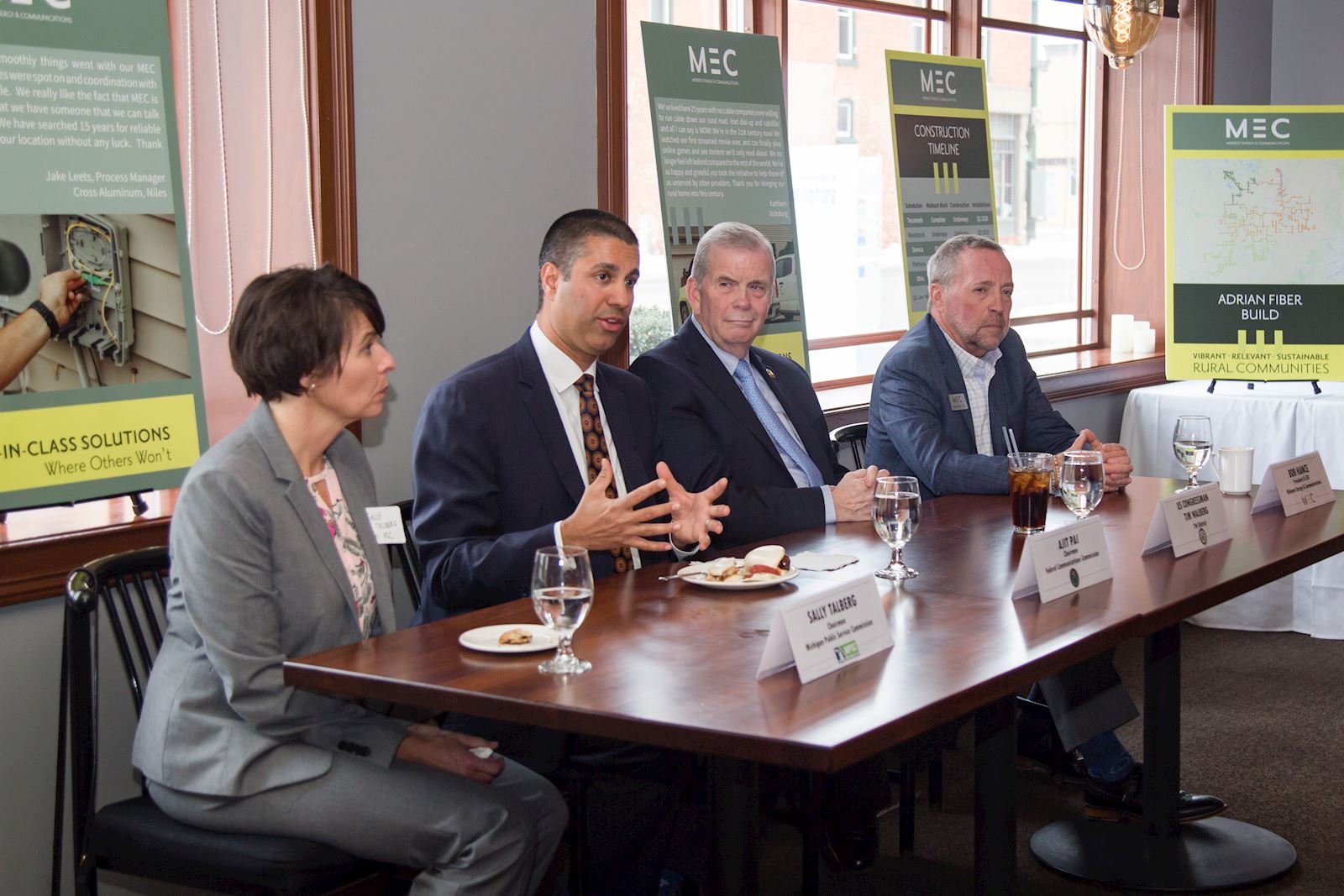FCC Chairman Visits MEC Fiber Project
Published
on Friday, January 24, 2020
in
Community

Midwest Energy & Communications (MEC) is a national trailblazer in rural broadband, and one of only four electric cooperatives in the country with more than 10,000 internet subscribers. The co-op’s efforts were recognized on Thursday as officials hosted Ajit Pai, Chairman of the Federal Communications Commission (FCC), along with Tim Walberg, 7th District Congressman, and Sally Talberg, Chairman of the Michigan Public Service Commission, at a field visit in MEC’s southeast Michigan service territory.
Congressman Walberg invited Chairman Pai to learn more about the co-op’s successful work in bringing high-speed fiber internet to constituents in his district, as well as other parts of southern Michigan and northern Indiana and Ohio. MEC began a five-year fiber deployment in its southwest Michigan service area in 2015. With more than 12,000 connected customers entering 2020, efforts are now focused on a two-year build in the southeast Michigan service territory.
Thursday’s visit precedes next week’s FCC vote on the Rural Digital Opportunity Fund (RDOF), which commits another $20.4 billion over the next decade to support high-speed broadband networks in rural America.
Congressman Walberg, Chairman Pai and Chairman Talberg, along with Bob Hance, MEC President/CEO, addressed a small gathering at Evans Street Station in Tecumseh, all agreeing that RDOF is a critical next step in transforming the rural space, even beyond the electric cooperative service area.
“We began building our network before federal dollars were available, because we needed the fiber communications infrastructure for utility purposes,” Hance said. “A handful of electric cooperatives were early adopters in deploying fiber internet, and many others have since followed. An opportunity like RDOF is a great catalyst to move others to action as it removes some of the onerous financial barriers to entry.”
RDOF targets areas that lack access to broadband service with speeds of at least 25 megabits per seconds (Mbps) downstream and three Mbps upstream. The reverse auction format helps ensure that superior technologies will prevail.
“We applaud the FCC for the way RDOF was designed, as it affirms the reality that people in the rural space need and deserve the same robust platforms and speeds that are available in more urban areas,” Hance said.
Following the discussion, guests visited a field location in Tecumseh and observed crews at work string and lashing fiber.